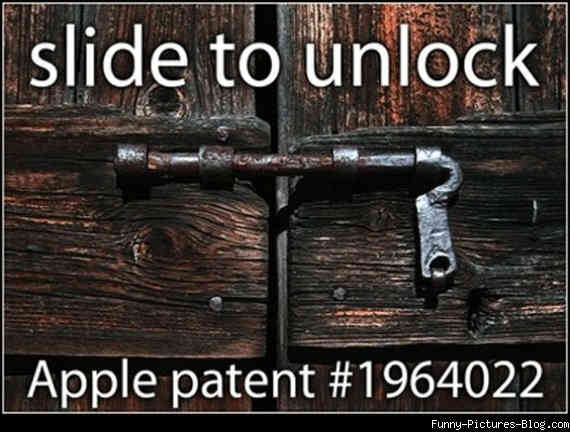| Patent Office Invalidates Apple's Rubber-banding Patent |
| Written by Mike James | |||
| Tuesday, 23 October 2012 | |||
|
The patent office has seen fit to agree that Apple "rubber-banding" patent is silly, using the technical term "invalid". This is good news, but the bad news is that a prior patent is part of the reason. This verdict isn't final. What is in the legal world if you have enough money? Apple's rubber-banding patent concerns the behavior of a page when you scroll to the end. Instead of letting the user know they have reached the end of the scroll by going beep or sending a 1000V shock into their finger, iOS makes the page overshoot the scroll and then bounce back as if it was attached to the top of the screen with a short length of rubber band. Cute, but hardly rocket science. And to most programmers not even novel enough to merit a patent. However, one was granted and used as part of the case against Samsung and its Android phones. In other words, the patent is part of the bundle of patents that Apple is using to try to kill off Android. Interestingly this particular patent was easy enough for Samsung to get around by simply not using it. Various other patents have also been easy enough to avoid invalidating. However, in many cases the feature has been removed without time to invent a replacement with the resulting loss of usability.
Florian Mueller of Foss Patents reports that now the rubber-band patent has been invalidated by the USPTO. It has been rejected because of lack of novelty. As already mentioned, the rejection isn't final and Apple can appeal. The rejection is on three specific counts: a) some claims are anticipated by an 2003 AOL patent b) some claims are obvious given the 2003 AOL patent c) some claims are anticipated by another Apple patent filed in 2005 So as I say some good news, some bad. It is good that a patent on something so simple has been rejected, but the rejection being based on previous patents is bad. It really doesn't help to say that a patent that seems silly is invalid because of earlier silly patents. As Florian Mueller points out, one patent probably doesn't make a lot of difference in the bigger issue of Apple v Android - it just has to hang on to enough of them to make the point. The original rational for patents is to allow the publication of the inner workings of things so that others could see and understand them and make further progress. The alternative to patent protection is to keep the inner workings a trade secret. However, anything a programmer can reproduce in a short time after seeing it can't be patentable because its inner workings are clearly obvious.
Appeals Court Lifts Ban on Samsung Galaxy Nexus Apple's Win Over Samsung - What Next Samsung Hopes to Lift Ban on Galaxy Tab Apple Patents Disable The Starship Enterprise Apple v Samsung Galaxy Nexus: A Programmer Reads the Patents
Comments
or email your comment to: comments@i-programmer.info To be informed about new articles on I Programmer, install the I Programmer Toolbar, subscribe to the RSS feed, follow us on, Twitter, Facebook, Google+ or Linkedin, or sign up for our weekly newsletter.
|
|||
| Last Updated ( Tuesday, 23 October 2012 ) |


